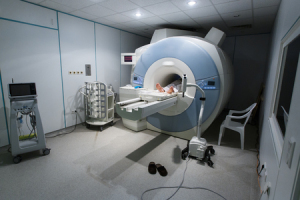por
Lauren Dubinsky, Senior Reporter | November 16, 2016

May replace invasive biopsies
A team of researchers at Boston University Medical Center found that MR can be used to diagnose bone marrow cancer. The findings were published in the journal Blood Cancer.
Bone marrow cancer, also known as myelofibrosis, involves a slow increase of myeloid cells. At the end stage of the disease, normal blood cell development is suppressed and that results in bone marrow failure.
Bone marrow cancer is currently diagnosed through invasive bone marrow biopsies. A needle is used to draw a sample of hardened bone marrow from the patient's hipbone.



Ad Statistics
Times Displayed: 16169
Times Visited: 33 Final days to save an extra 10% on Imaging, Ultrasound, and Biomed parts web prices.* Unlimited use now through September 30 with code AANIV10 (*certain restrictions apply)
This procedure comes along with potential risks including infection, prolonged discomfort at the biopsy site and excessive bleeding, especially for those with low numbers of platelets.
The researchers tested whether a T2-weighted MR could detect bone marrow fibrosis in an experimental model. They were able to demonstrate that MR can detect a pre-fibrotic state of the disease as well as progressive myelofibrosis with a clear bright signal.
According to the researchers, this was the first study to evaluate the use of T2-weighted MR in an experimental model of myelofibrosis and examine potential sources of the MR signal.
"It is intriguing to speculate that future pre-biopsy MRI of the human pathology might guide, in some cases, decisions on if and where to biopsy," Katya Ravid, lead researcher and professor of medicine and biochemistry at the university, said in a statement.

